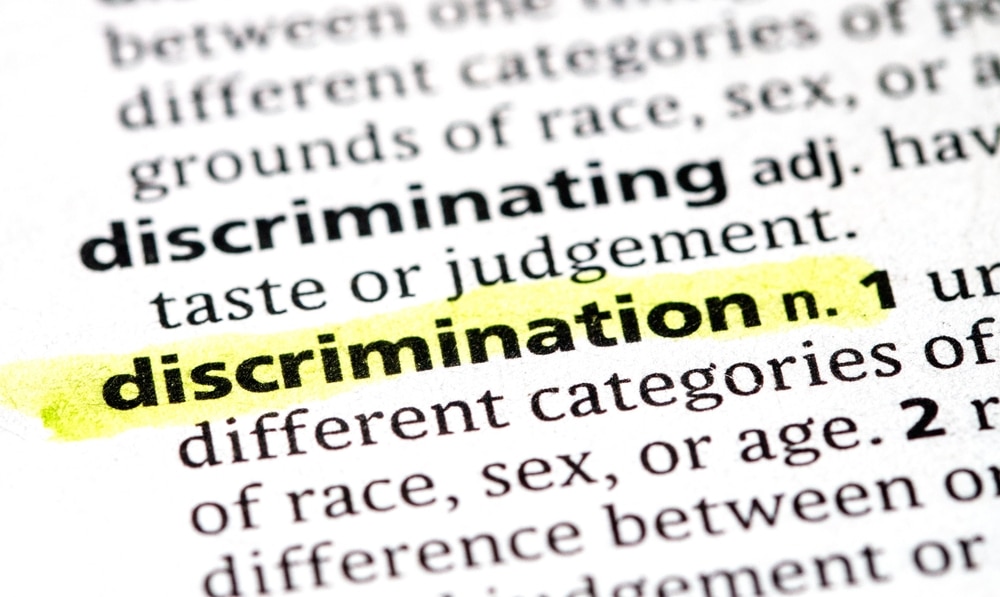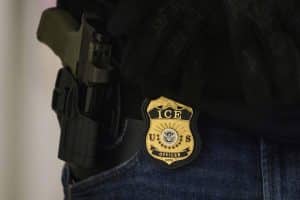In an early December interview with Business Matters, Governor Josh Shapiro once again voiced his support for school vouchers. Voucher advocates who had been stung by his veto of their previous attempt to bring more vouchers to Pennsylvania probably took heart.
But Pennsylvania already has school vouchers, and if Shapiro wants to see problems that come with a new voucher program, he need look no further than the widespread discrimination that comes with the program we have.
Pennsylvania has had the Educational Improvement Tax Credit (EITC) and Opportunity Scholarship Tax Credit (OSTC) programs for over twenty years. They are a particular type of voucher program called a tax credit scholarship.
How do tax credit scholarships work?
In a tax credit scholarship program, donors make contributions to fund vouchers for private or religious schools. In turn, the state gives the donor a tax credit. In effect, they fund a private school voucher instead of paying a portion of their taxes.
Tax credit scholarships perform an end run around any rules saying that public taxpayer dollars collected to fund public education cannot be used to fund private religious schools. Tax credit voucher champion Betsy DeVos was fond of saying that they don’t “spend a single dollar of government money.”
That’s not exactly true.
Imagine your spouse says, “Your brother still owes us $100. We need to buy groceries, so go get it from him. And do not spend any of it on beer.” You go to your brother and make a deal—he can just pay you $50 and two cases of beer, and you’ll call it even. Now you are short $50 of grocery money, and you have to hope that your spouse accepts that, technically, you didn’t spend any money on beer.
READ: Pennsylvania’s School Funding Scheme Creates A Permanent Underclass. That May Be The Point
Kentucky’s Supreme Court struck down a tax credit voucher proposal, refusing to accept the “the money was never in the government’s hands” argument. “The money at issue cannot be characterized as simply private funds,” they wrote, “rather it represents the tax liability that the taxpayer would otherwise owe.”
In 20 years, around $2 billion have been put into the EITC/OSTC program. That represents a $2 billion hole in the state budget. As with the missing $50 in grocery money, when that $2 billion did not make it to the state treasury, the state had to either raise money from another source, or cut services. One way or another, the taxpayers have paid for those vouchers.
What we don’t know.
We don’t know what we got for our $2 billion
Part of the issue is sheer complexity. In Pennsylvania, donated funds go to an intermediary scholarship fund organization. Pennsylvania has nearly 250 scholarship organizations and 759 schools participating in the OSTC voucher program.
A 2022 report from Education Voters of Pennsylvania lays out the many holes in our knowledge. Are these vouchers being used to help poor students “escape” low-performing schools? Nobody knows, because the state may not collect any demographic information about students using vouchers. A study in 2019 found that of 151 schools running their own tax credit scholarship programs, 57 enrolled no low-income students at all. Nor is any audit conducted to monitor compliance with income caps for recipients.
It is probably possible to launder your own child’s tuition through the program by “donating” it for a “scholarship,” giving you a tax credit for your own child’s tuition. Is that actually happening? It could be, but nobody really knows.
READ: Project 2025 Wants to End Public Education As We Know It
We do not know which districts the students come from, but we do know that the schools that receive funds are clustered primarily in six Pennsylvania counties (out of 67), including some of the most expensive elite schools in the state. The Education Voters report offered the example of AIM Academy, which received $1.3 million in scholarship funds for 96 students; that means that the students was funded by the state at $13.5 thousand per student, resulting in a rate of funding higher than that of 97% of students attending public school.
We also have no idea what results are being achieved. Are students getting a good education, better than they might have received at their public school? Once again, nobody has any idea. In a 2022 report, the Independent Fiscal Office found that, “… it is not possible to comment on whether state funds have been used effectively due to lack of general and specific outcome data.”
So what do we know?
As noted above, we do have a listing of participating schools. Education Voters of Pennsylvania has just released a report that looks at those schools and what researchers found is a pattern of discrimination – not quiet or subtle discrimination – but discrimination that is clearly laid out in school policies. Discrimination based on LGBTQ+ status, disability, academics, religion, and pregnancy. Discrimination, in short, that would never be allowed in the public school system, and yet discrimination that is funded, via vouchers, by taxpayers.
Ed Voters selected every fourth school on the list of OTSC voucher schools. Of those, they were able to evaluate 159. Of those they found:
– 100% had policies in place that could be used to discriminate against students.
– 89% of the schools are religious.
– More than half discriminate based on disability. More than half can discriminate based on academic ability or performance. Nearly half discriminate based on religion. One in five explicitly discriminates against LGBTQ+ students.
– And more than 80% have policies that allow them to refuse admittance to a student who is not the “right fit.”
Here are just a few samples of the discrimination the Ed Voters found in their research.
Disability
Many families of students with special needs are rightly frustrated with how public schools struggle to meet the requirement to provide an appropriate education for their child. But many private schools do not recognize that requirement at all.
A student whose academic or social-emotional needs exceed a regular classroom may be denied admission. All admissions are offered on a 30 day probationary period to determine if the school can meet the academic, social and emotional needs of the student.
–St. Stephen’s Episcopal School, Harrisburg
In other words, we reserve the right to decide that your student is going to be too much of a challenge.
Please understand that C.C.A. may not be able to meet the needs of learning disabled children or accommodate students having special needs. C.C.A.cannot implement existing IEPs.
–Cheswick Christian Academy, Cheswick
If your special needs student has a state-mandated Individualized Education Program, you will have to give that up to attend here.
The Academy is not equipped for teaching students that might need special education or might have behavior problems. Students in need of special care are referred by parents or school personnel to the local public school district.
–Al Aqsa Academy, Philadelphia
Note this addresses not just special needs, but behavioral issues. If your child gives us too much trouble, we’re going to send you back to public school. Many of these schools may be Christian, but they do not feel any mission to minister to students with special needs.
Academics
Many of these schools erect academic barriers to admission, like the Pittsburgh Christian Academy, which states that they “generally enroll students who are average or above average in ability and achievement.” Many also require screening exams as part of the application process.
Pregnancy and Abortion
It’s unsurprising that the Harrisburg Diocese states that “any student who promotes, procures, actively assists, or performs an abortion shall be dismissed.” Other schools go a step further. Dayspring Christian Academy considers pregnancy a “Level 3 offense,” which will be “handled directly by the Headmaster, the grade level Principal, and the Police (if necessary).”
READ: Pennsylvania Is the Cyber Charter Capital of the Country. It’s Not Something to Celebrate
And Clearfield Christian School promises not only “immediate expulsion,” they will also suspend the student on suspicion of pregnancy “until medical proof is present.”
At least most of these policies apply both to the female and male students involved.
Religion
Catholic schools have long exercised a preferential policy for the children of parishioners. Many of Pennsylvania’s voucher-accepting religious schools go beyond that.
Linville Hill Christian School requires one or both parents to be born again Christians. Heritage Christian School of West Perry requires families to attend a “Bible-believing church.” Also, “Students may be refused admission if the parents are not in agreement with any of the school’s beliefs, objectives, doctrines, bylaws, or procedures.” Lititz Area Mennonite School requires that “At least one parent/guardian shall have a personal understanding of the new birth of Christ.”
These are schools requiring students and their families to worship the correct god in the correct manner.
LGBTQ+
Many of the schools are crystal clear on this point. From one school’s application:
Thus, DAYSPRING CHRISTIAN ACADEMY retains the right to refuse enrollment to or to expel any student who engages in sexual immorality, including any student who professes to be homosexual/bisexual/transgender or is a practicing homosexual/bisexual/transgender, as well as any student who condones, supports, or otherwise promotes such practices (Leviticus 20:13, Romans 1:27).
Some are very specific when it comes to Biblical authority and the correct version.
Individual differences in lifestyle that deny, ignore, or reject biblical standards represent diversity in rebellion to God’s standards and hence, are unacceptable for the families of CCA. CCA holds to the beliefs as stated in the King James Version of the Bible and asserts that marriage is the union between one man and one woman, and that from the beginning of the creation God made humans in two distinct sexes, male and female.
— Calvary Christian Academy
The right fit
Many private schools assert the right to expel or deny admission to any student for any reason. That’s not an exaggeration. Mt. Moriah Christian School states plainly “Mt. Moriah Christian School reserves the right to dismiss any student at any time as we may deem necessary.”
We maintain the right to refuse admittance at our discretion and to suspend or expel any student who violates the standards set down and defined by the administration. The administration also reserves the right of not defining the criteria or reason when applications are not accepted.
— Red Lion Christian School
In other words, we don’t have to accept you, and we don’t have to explain why we won’t.
Sometimes, after careful and thoughtful consideration of a child’s progress through the school year, the school may recommend that a family seek a placement in a school other than LCDS that has a program which is more suitable for the unique academic or social needs of their child.
— Lancaster Country Day School
We may just counsel you out because we have decided you don’t really fit.
This is not a rare and localized phenomenon. Schola Inbound Marketing is a company in Ephrata, PA, run by Ralph Cochran, a 1995 graduate of Grove City College, a conservative religious college in Western PA. His company’s business is helping private Christian schools recruit and retain “mission-appropriate” while ridding itself of those who are not. So keeping away families who are not the “right fit” is not just an isolated activity. It’s an activity common enough to support an entire consulting business. And as mentioned above, 80% of the schools in the study sample do it in one form or another.
So what’s the big deal?
These are all private schools. Shouldn’t they be free to set whatever discriminatory rules they choose? As Mt. Moriah Christian School says as they assert their right to expel any student for any reason at any time, “Admission to MCA is a privilege, not a right.”
That captures how private and public schools differ. In this country, we treat public education as a right for every student and every family, regardless of race, religion, special needs, or gender identity. That is why we all pay taxes — to ensure that every child in this country has the opportunity to get the education they need.
The private system operates on a different premise — the school will provide an education only to those who they deem worthy. It is education for the few, and the school itself reserves the right to decide who that few will be. And with vouchers, taxpayers get to foot the bill for that discriminatory system.
READ: Pennsylvania Cyber Charter Owners and Operators Get Rich While Students Receive Poor Education
Governor Shapiro told Business Matters, “Parents should be empowered to put their kids in the best possible position for their kids to succeed.” That is the promise of vouchers, but as this report shows, it’s a failed promise.
Set aside for a moment the research showing that voucher systems get dismal results. Vouchers fail to provide the most basic promise they make. It is school’s choice, not school choice.
If you go school shopping, voucher in hand, it is the schools that will tell you whether or not your child can choose them. If your child has too many special needs, or isn’t well-enough-behaved, or has low grades, or is an LGBTQ+ person, or doesn’t worship the right God in the right way, or is just, for some reason you will never know, not a “right fit,” well, then, you get no choice. It is also a system that can be strictly authoritarian. Students and families give up the right to anything resembling due process. The school hands down a decision, and there’s no appeal, maybe not even an explanation.
But you do, in one final irony, get to fund vouchers for students to attend the school that rejects your own child. You get to fund the very discrimination that has hit your own family.
Read this alarming report in its entirety. Then send a message to Governor Shapiro: The vouchers we already have are unaccountable taxpayer-funded discrimination. We don’t need more.







